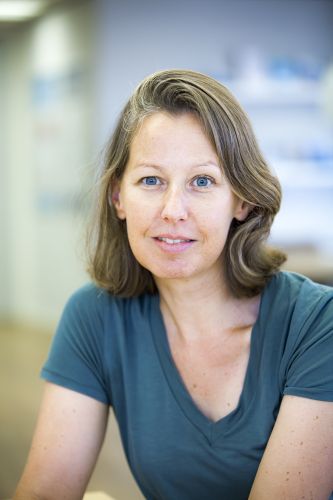One in five people diagnosed with cancer has a rare form of cancer, accounting for ~20% of the total cancer prevalence. A type of cancer is called 'rare' if it affects fewer than 6 in 100,000 people per year. Rare cancers are often difficult to diagnose and treat, and less research is performed on rare cancers meaning slower progress in finding new treatment options.
A study published in the European Journal of Cancer is the first to assess survival trends by cancer domain in the Netherlands over the past 25 years. Using data from the Netherlands Cancer Registry, the researchers found that the overall 5-year survival was worse for rare cancers than for common cancers (52.0% versus 68.7%). The 5-year survival rate for common cancers increased from 56.9% to 70.1%, but for rare cancers the increase was much smaller, from 46.2% to 52.6%. The majority of rare cancer entities did not show an improvement in 5-year survival.
Saskia Duijts, a research associate at the Department of Medical Psychology, Cancer Center Amsterdam and Amsterdam Public Health Research Institute and the Netherlands Comprehensive Cancer Organisation (IKNL): “The delay in diagnosis and late initiation of treatment are the main reasons for lower survival rates for this group.”
The researchers state that the differences in survival between rare and common cancers indicate major challenges for rare cancer care and emphasize that improvement is highly needed. They call for increased investment in scientific researchto improve early diagnosis and develop novel therapies.
Designating centers of expertise
Designating centers of expertise for each rare cancer could help to get a diagnosis and correct treatment more quickly. Centers of expertise have a high concentration of specialized knowledge and resources. Multi-disciplinary teams with medical specialists provide comprehensive and compassionate care. Importantly, the centralization of patients with specific rare tumors also accelerates research and therapy developments.
At Cancer Center Amsterdam, 10 rare cancer expertise centers have been accredited by the Ministry of Health, Welfare and Sport to provide specialized care and perform research to develop more effective therapies for patients with rare cancers.
• Bone Sarcomas
• Heriditary Cancer
• Hematological Malignancies
• Brain tumors
• Upper Urinary Tract Tumors
• Head and Neck Tumors
• Retinoblastoma
• Rare Gastrointestinal Tumors
• Endocrine and Neuroendocrine Tumors
• Rare Gynecological Tumors
For more information, contact Saskia Duijts or see the publication:
De Heus, E., et al (2022) The gap between rare and common cancers still exists: Results from a population-based study in the Netherlands. Eur J. Cancer 167, P103-111. DOI: https://doi.org/10.1016/j.ejca.2022.03.001
Involved researchers at Cancer Center Amsterdam:

Saskia F.A. Duijts
Els J.M. Nieveen van Dijkum
Text by Laura Roy.

